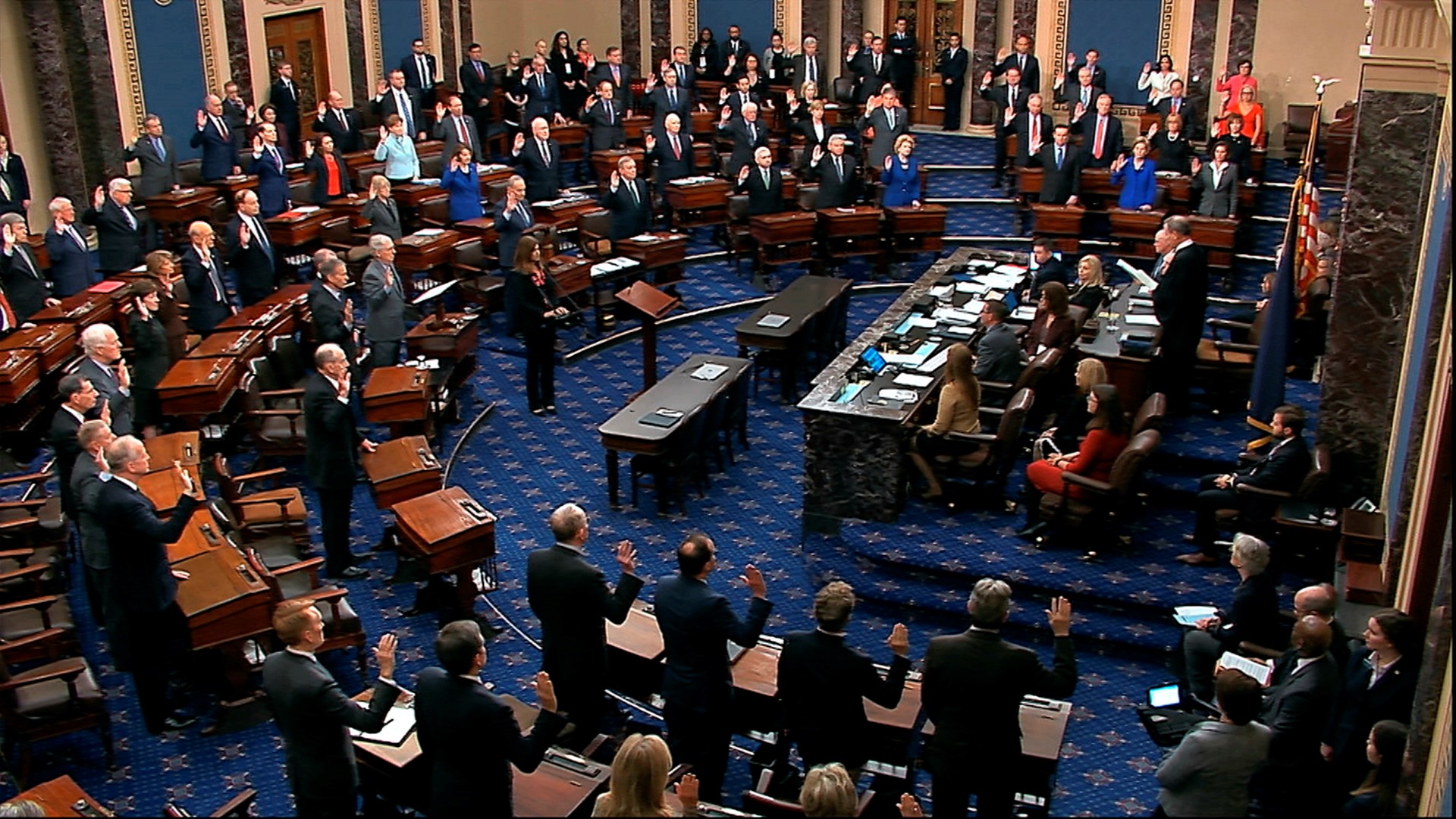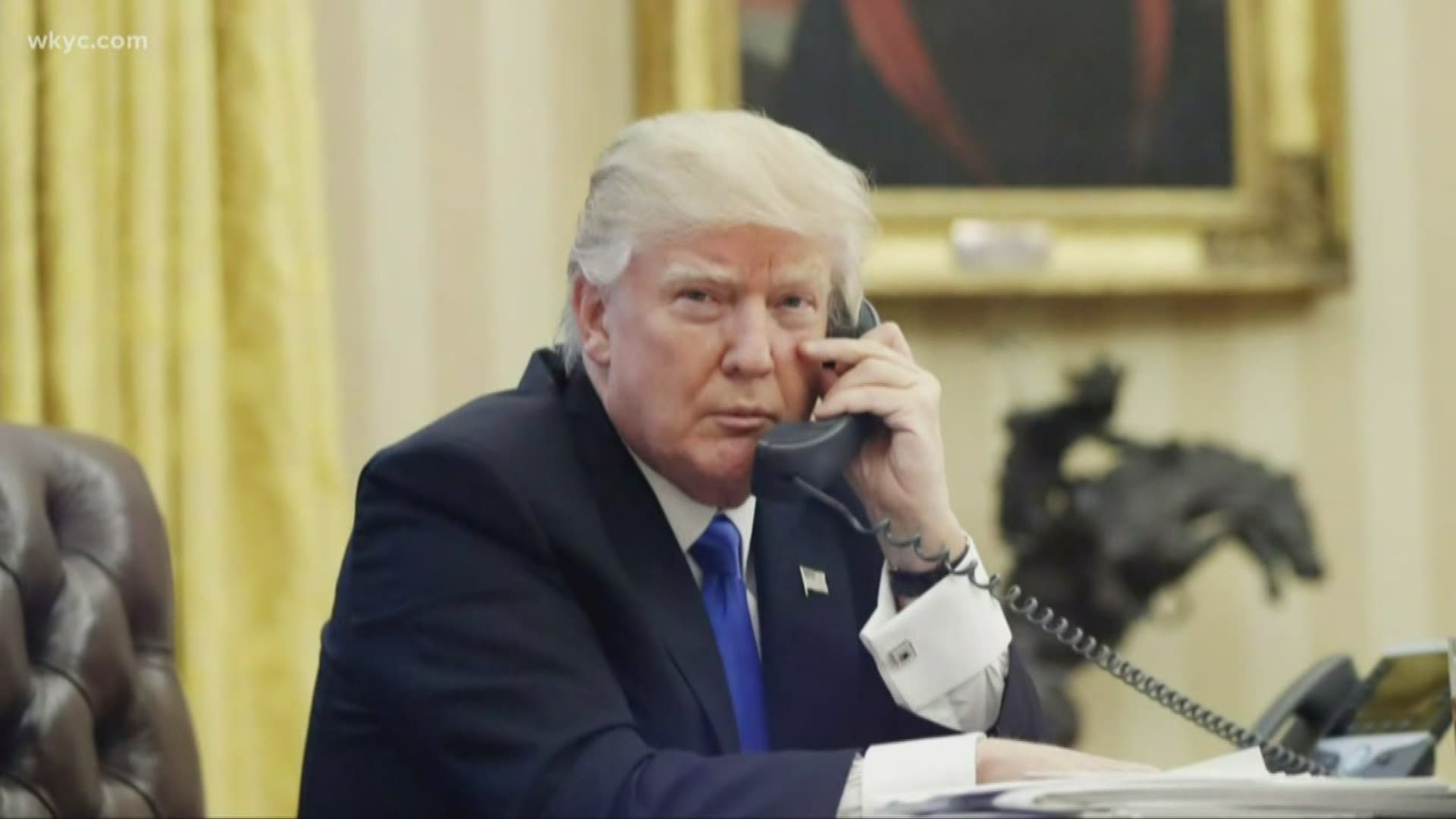WASHINGTON — House Democrats have wrapped up the day of arguments on Wednesday in President Donald Trump's impeachment trial, appealing to skeptical Republican senators to join them in voting to oust him from the Oval Office to “protect our democracy.”
Trump's lawyers are sitting by, waiting their turn. The president is blasting the proceedings, threatening jokingly to face off with the Democrats by coming to “sit right in the front row and stare at their corrupt faces.”
The challenge before the House managers is clear: Democrats have 24 hours over three days to prosecute the charges against Trump, trying to win over not just fidgety senators but the American public.


Outlining the Democrats' case, lead prosecutor Rep. Adam Schiff of California spoke for more than two hours, telling senators not to be “cynical” about the politics of the proceedings and asking them to draw on the Founding Fathers' intent, The Associated Press reports.
The defense in Trump's Senate impeachment trial may sound very similar to the defense in the first impeachment case in American history.
Back in 1868, a lawyer for President Andrew Johnson argued that Johnson couldn't be removed from office because Johnson hadn't committed a crime. Today, one of Trump's lawyers, Alan Dershowitz, was set to argue at Trump's trial that impeachment requires “criminal-like conduct."
But legal scholars dispute the idea that the Founding Fathers ever intended for impeachable offenses to require proof of a crime. Historians also are skeptical about crediting this argument with securing Johnson's narrow acquittal, AP reports.


The opening statements in Trump's impeachment trial began Wednesday following a marathon session Tuesday in which trial rules were finalized and Democrats' efforts to introduce new documents and witnesses were shot down, at least for now.
Wednesday's proceedings began at 1 p.m. EST with both the House managers, serving as the prosecution, and Trump's defense team having 24 hours over three days each to present their opening statements. Senate Majority Leader Mitch McConnell initially proposed giving each side two days each but made a change after pushback from moderate Republicans.
The opening statements should last through next Tuesday. The trial is in session six days a week, taking Sundays off.


The opening arguments come after a 13-hour marathon Tuesday in which nearly a dozen amendments were introduced, mainly about allowing witnesses like former national security adviser John Bolton and Acting White House Chief of Staff Mick Mulvaney and subpoenaing documents related to Ukraine. Almost all the Democratic amendments were shot down along party lines, 53-47. But, they could be revisited later.
The one outlier was a 52-48 vote against ensuring that there would be a vote later on additional witnesses. The one Republican to cross party lines there was Sen. Susan Collins of Maine, who has voiced she is open to hearing witnesses. Collins, who is facing a tough re-election campaign in November, is one of four Republicans seen as possibly crossing party lines on witnesses in the future.
After opening arguments, the rules allow for each side to get 16 hours of questions from senators, who are the jurors. After that, senators will then decide if they will accept more evidence or witnesses.
If no new evidence or witnesses are added, there is a chance the trial could end before Trump's State of the Union, set for Feb. 4.
Speaking at the World Economic Forum in Davos, Switzerland, Trump repeated his frequent talking points by calling the trial a "hoax" and a "witch hunt" while touting the economic successes of his administration.


